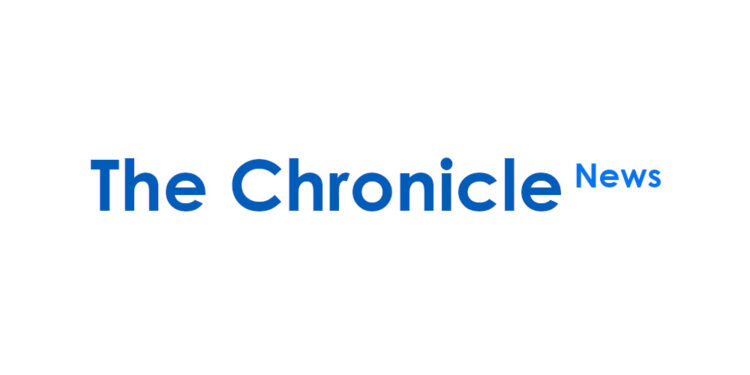WASHINGTON — The Supreme Court on Thursday tossed out affirmative action in college admissions, compelling universities to explore alternative methods to foster diverse student populations.
The court’s conservative majority reversed the admissions implemented by Harvard and the University of North Carolina — the country’s oldest private and public colleges.
The Supreme Court found that Harvard’s and North Carolina’s affirmative action programs violated the 14th Amendment. The ruling overturned decades of precedent sustained over the years by a small court majority that included justices Republicans had selected.
The two programs “unavoidably negatively employ race” and “involve racial stereotyping” in a manner that violates the Constitution, according to Chief Justice John G. Roberts Jr., writing for the 6-3 decision.
Universities may still consider how a student’s race has affected their life- a subject they may discuss in an application essay. Still, he cautioned colleges not to exploit such concerns as a covert method of racial selection.
“Universities may not simply establish through application essays or other means the regime we hold unlawful today,” he wrote.
The judgment illustrates racial and political divisions in the nation on affirmative action and might have far-reaching consequences. The decision might pave the way for challenges to diversity initiatives in the corporate world and require schools and universities nationwide to review their admissions procedures.
Roberts was joined in his opinion by Justices Clarence Thomas, Samuel Alito, Bret Kavanaugh, and Amy Coney Barrett.
Multiple members of the Oklahoma delegation weighed in support of the Supreme Court’s decision.
“Glad to see the U.S. The Supreme Court struck down affirmative action as unconstitutional,” wrote Oklahoma Senator Markwayne Mullin, “College admissions must be decided on equal standards of merit and achievement, not ‘race-based preferences,’’
The decision mentions Oklahoma’s initiative against affirmative action nearly six times throughout the sixty-page opinion.
Roberts, saying the University of California Berkeley and the University of Michigan minority enrollment had increased following implementation of bans on affirmative action, wrote that the admission “‘experience is largely consistent with other schools that do not consider race as a factor in admissions,’ including, for example, the University of Oklahoma’s most prestigious campus.”
“Today’s Supreme Court ruling is a massive win,” said Oklahoma representative Josh Brecheen, “Oklahoma was ahead of the curve when our state banned affirmative action 11 years ago.”
In 2012, Oklahoma became one of eight states to outlaw affirmative action in public employment and university admissions. According to Ballotpedia, only some of the 13 public institutions in the state reported using race as an indication for access.
Senator James Lankford (R-OK) also approved of the ruling.
“We are all under equal eyes of the law, and today the Supreme Court reaffirmed what we all know to be true of the 14th Amendment,” he wrote. “We are the greatest nation on earth; we should not use race to determine who is worthy of attending certain universities and who is not.”
In this case, the dissenting opinions were Justices Sonia Sotomayor, Elana Kagan, and Ketanji Brown Jackson.
Sotomayer took the release of Roberts’ decision to read her dissent in court.
“Today, this Court stands in the way and rolls back decades of precedent and momentous progress. It holds that race can no longer be used in a limited way in college admissions to achieve such critical benefits,” said Sotomayer.
The court’s first Black female Justice Ketanji Brown Jackson, expressed her disagreement with the ruling in a separate dissent calling it “truly a tragedy for us all.”
After the decision was announced, President Biden criticized it in a broadcast speech, stating that the nation could not allow it to be “the last word on the subject of affirmative action.”
“Discrimination still exists in America,” he said, reiterating his previous statement, “Today’s decision does not change that.”
The court’s decisions attracted protestors from both sides of the argument, including Nadine Seiler.
“You can build ocean gates, you can go to Mars and the moon, but you don’t understand affirmative action,” said Seiler, carrying a banner that read ‘SCOTUS is illegitimate.’ “That is willful ignorance, and I’m just done with it.”
In the North Carolina case, the vote was 6-3, while in the Harvard case, it was 6-2, after Jackson recused herself. Over the past two decades, the Supreme Court supported college admissions programs that considered race a factor, including as recently as 2016.
However, that was before the inclusion of the three justices appointed by former President Donald Trump on the court. During the arguments held in late October, all six conservative justices raised concerns about the practice, despite its previous affirmation in the Supreme Court rulings dating back to 1978.
Gaylord News is a reporting project of the University of Oklahoma Gaylord College of Journalism and Mass Communication. For more stories by Gaylord News go to GaylordNews.net.
Want to reach a local audience and grow your business?
Our website is the perfect platform to connect with engaged readers in your local area.
Whether you're looking for banner ads, sponsored content, or custom promotions, we can tailor a package to meet your needs.
Contact us today to learn more about advertising opportunities!
CONTACT US NOW




